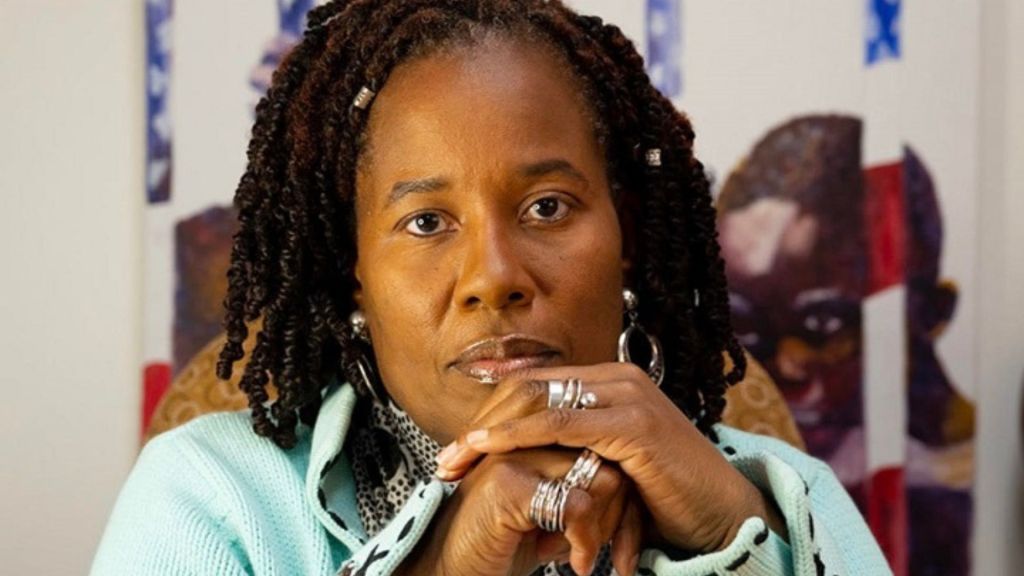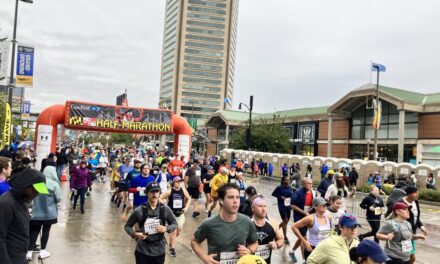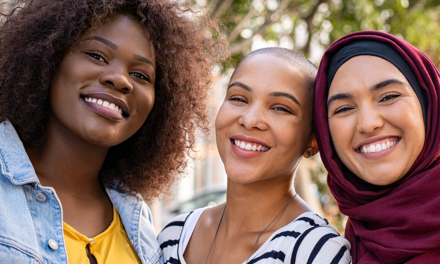Until the past week, I had held fast to the belief that America’s version of representative democracy, which has been around since the Constitution was ratified in 1788, was stronger than one person, one party or one branch. The whole idea of checks and balances is to provide guardrails that prevent tyranny. I no longer believe that to be the case.

CREDIT: Courtesy photo
We are witnessing a worst-case scenario of what happens when the political levees break. It has taken less than three months to break a system that has been struggling to stand up straight for 237 years. Democracy was not perfect. It was fragile, and I believe that it is ending.
The questions we must now address are: What comes after representative democracy? What can be saved? What is being sacrificed for the good of only a few? What will be the new normal? And what do we need to do to continue to take care of ourselves, push back when we can, and stay healthy and grounded?
This is where the Association for the Study of African American Life and History (ASALH) comes in and where my work as the current president begins. Founded in 1915 by Dr. Carter G. Woodson, ASALH is the keeper of Black history, and our mission is to create and disseminate that knowledge. There is no American story without us. There is no yesterday and no tomorrow without our voices, creativity, passion and ability to love and laugh even amid terror and despair. We are built for these moments. We do not shrink away. We lean in rather than lean out.
It was Ida B. Wells who wrote, “The way to right wrongs is to turn the light of truth upon them.” As the president of ASALH, I take this as a personal challenge—to recognize the wrongs and do everything I can to find and uplift the truth. This was the framing that we used for our first ASALH National Convening as I sat down with Rep. Al Green, Kimberlé Williams Crenshaw, Lester Spence, Melanie L. Campbell and Tanya Clay House to develop our ASALH Magna Carta, a set of strategies that you can immediately use to practice daily intentional moments of resistance. We were joined by 956 guests who stayed engaged and stayed with us until the end. Our community discussion was led by LaMarr Darnell Shields and included tips for mental and physical health from Kevin Washington and coach Chauncey Whitehead.
When I thought about the best way to respond to everything happening, I was particularly intrigued by a conversation that I had earlier this month with Rep. Kweisi Mfume, D-Md., when he mentioned that maybe it was time for America to develop a Magna Carta.
In 1215, in response to King Edward’s tyrannical rule and arbitrary and random orders, the English barons (powerful landowners) developed a Magna Carta. This document limited the king’s power and established the rule of law, due process and protection of rights. They then forced King John to sign it. The Magna Carta, as it is most often applied, is a foundational document for democracy and human rights. For ASALH, I see our Magna Carta as a reminder that democracy belongs to us; we are the people.
Winston Churchill once said, “Danger is real; fear is a choice.” We are in danger because our democracy, which was already quite fragile, is falling, but we are not powerless. We can choose to fight and practice small daily acts of intentional resistance. Our Magna Carta outlines some of the ways that you can get started. We invite you to add to this list as we work together to save (or rebuild) democracy.
ASALH’S MAGNA CARTA
1. Find the organizations and institutions doing the work you agree with and defend them with everything you have and not just with your thoughts and prayers. I often say, give your tithes to your church and give your offerings to these organizations and institutions. The fight is real, and it is not cheap.
2. Create local communities of action and accountability where you can work together to demand justice and equality. Audre Lorde teaches us that “the master’s tools cannot dismantle the master’s house,” but I believe that they can be used to disrupt the natural tendency to normalize the horror and terror we are experiencing now.
3. Show up and be present in spaces where you are not expected to be, so you should plan to attend as many community political meetings as you can to speak up about what is happening in this country. You should phone bomb your Republican and Democratic representatives: flood their inboxes, write them, call them, tweet them, visit them. Do not let up because they will take your silence as a form of being complicit.
4. Create a report card to grade your representatives and circulate it among members of Congress. Let them know that you are watching what they are doing and will hold them accountable.
5. Write opinion editorials for your local newspaper. All national movements begin locally, so speak to your immediate circle of influence –your co-workers, neighbors, teachers, church members and family and keep them informed and challenge/encourage them to join the resistance.
6. Do not discount the power of a well-organized and planned march. People power pulls attention and a spotlight–use it to amplify your message and widen your base.
7. You must lead the leaders, so instead of waiting for your elected officials to set the agenda, you work with your team to set it for them. Make them hear you and make them work for you. Make it costly for them to pivot, appease, or bend the knee in support of the issues that are detrimental to your community and our democracy.
8. Vote with your money. Make intentional, thoughtful purchases as often as you can. Shop local, buy small, and keep the money circulating within your community. Remember that the large chain store you are boycotting has employees who are not part of the board but are working and surviving off the minimum wages they are making. Your economic choice also impacts them. Work within your communities to set up mechanisms to support those who will be severely economically impacted if the store you are boycotting closes or reduces the number of staff.
9. Real change happens when you are inside the room—so consider whether it is time to run for office. We need to put people in place with the testicular fortitude to stand up for us and fight for and with us.
10. Using every platform you have, tell the truth about who we are and what we have contributed to this country. Discredit every lie and every half-truth at every opportunity that you have. Deny them victory and legitimacy.
This Magna Carta is just a start, but movements do not start unless you first start moving. My nana once said that you have to carve out the life you want with the stone and tools that you have been given. We have our voice, our platforms and each other. Let’s work together to carve out the future that we want our children to have.
The post Defending democracy: ASALH’s Magna Carta for resistance and renewal appeared first on AFRO American Newspapers.










